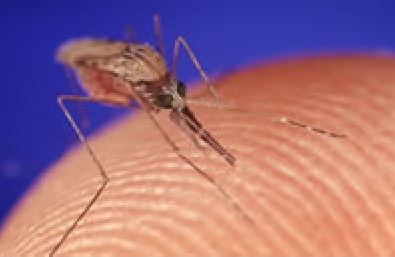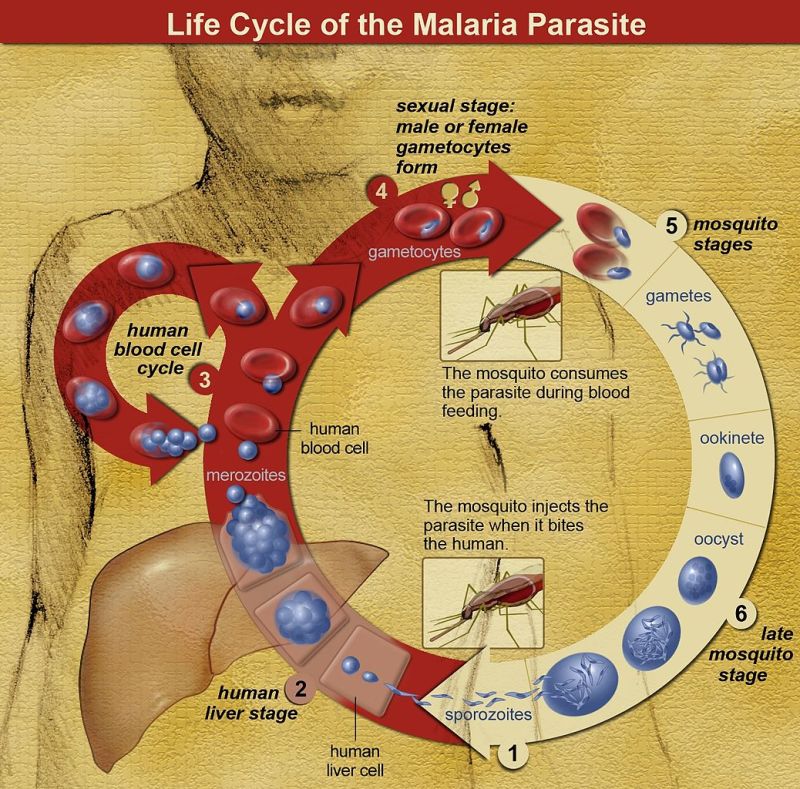Joseph R. Anticaglia, MD
Medical Advisory Board

On June 26, 2023, the Centers for Disease Control and Prevention (CDC) issued a public health alert, warning the public, doctors, and public health authorities about the risk of contracting malaria in the United States after four cases of malaria infections were reported in Florida and one in Texas.
Every year about 2,000 cases of travel-related malaria are reported in the United States. For the first time since 2003, the above five cases have been identified in people with no history of travelling outside the U. S.
Malaria is a life-threatening, mosquito-borne infectious disease caused by the Plasmodium parasite — the causative agent of malaria. The female, blood-sucking, uninfected Anopheles mosquitoes bites a human infected with malaria. The now infected mosquitoes bite a healthy person and transmit the disease to that individual. The infected person is not contagious and cannot spread the disease from one person to another. Malaria is not caused by a viral or bacterial infection.

Life Cycle
A — Uninfected mosquito bites a person infected with malaria and it becomes infected.
1 Infected mosquito bites someone and transmits malaria to that person.
2 Liver Stage: Parasites travel to the liver and infect the liver cells which can lie dormant for many days.
3 Red Blood Cell Stage: Parasites leave the liver and invade, infect red blood cells. This is the stage when malaria signs and symptoms typically develop.
4 Repeat of the Life Cycle: Uninfected mosquito becomes infected. The infected mosquito spreads malaria when it bites other people and the cycle repeats itself.
Anyone can get malaria, but the African Region was home to a significant majority of malaria cases and malarial deaths. Children under the age of five accounted for about 80% of malarial deaths in the region.
Almost “half of the world’s population is at risk of developing this condition. In 2021 there was an estimated 247 million cases of malaria causing approximately 619,000 deaths,” according to the World Health Organization (WHO).
Signs & Symptoms
Typically, a person experiences intermittent attacks of chills, fever and sweating (the parasites are in the bloodstream). People may also complain of headache, muscle aches, chest pain. abdominal pain, and bouts of nausea and vomiting, The person is anemic, the spleen is enlarged, and, at times, the liver. It may take 10 to 30 days, or longer, before malaria symptoms appear
depending on parasite species. Significant complications of malaria are cerebral edema, anemia and nephrotic syndrome
Causes (Etiology)
Malaria is an infection caused by Plasmodium. There are five species of the Plasmodium parasite that can infect humans. The type of parasite identified in Florida and Texas is called Plasmodium vivax which is a mild form of this disease. The severe form, the most deadly form of malaria, is caused by P. Falciparum.
Diagnosis
The diagnosis is made by examining blood samples under a microscope to identify Plasmodium in the red blood cells. Preventing malaria involves measures like taking prophylactic medication when traveling to high-risk areas, and wearing protective clothing.
Treatment
With early diagnosis and appropriate treatment to clear the parasites from the bloodstream, the prognosis is good. However, severe malaria can be life-threatening, especially in young children, pregnant women, and individuals with weakened immune systems
Malaria is a medical emergency that attacks millions of people and causes hundreds of thousands of deaths worldwide. Although the incidence of this disease is especially rare in the U. S., it’s pivotal that our public health system take preventive measures so that we’re not vulnerable to future widespread outbreaks.
Glossary
A parasite is an organism that lives on or in a host organism and gets its food from or at the expense of its host.
Reference
- CDC; Local Transmission of Plasmodium vivax Malaria — Palm Beach County, Florida, MMWR; Sep 26, 2003
- WHO; Malaria, Q&A; March 27, 2023
- Kyndall C. et al; Malaria in the USA: How Vulnerable Are We to Future Outbreaks?
- Curr Trop Med Rep. 2021
- Emily Buck; Nancy A. Finnigan; Malaria; StatPearls, January 22, 2023.
This article is intended solely as a learning experience. Please consult your physician for diagnostic and treatment options.

